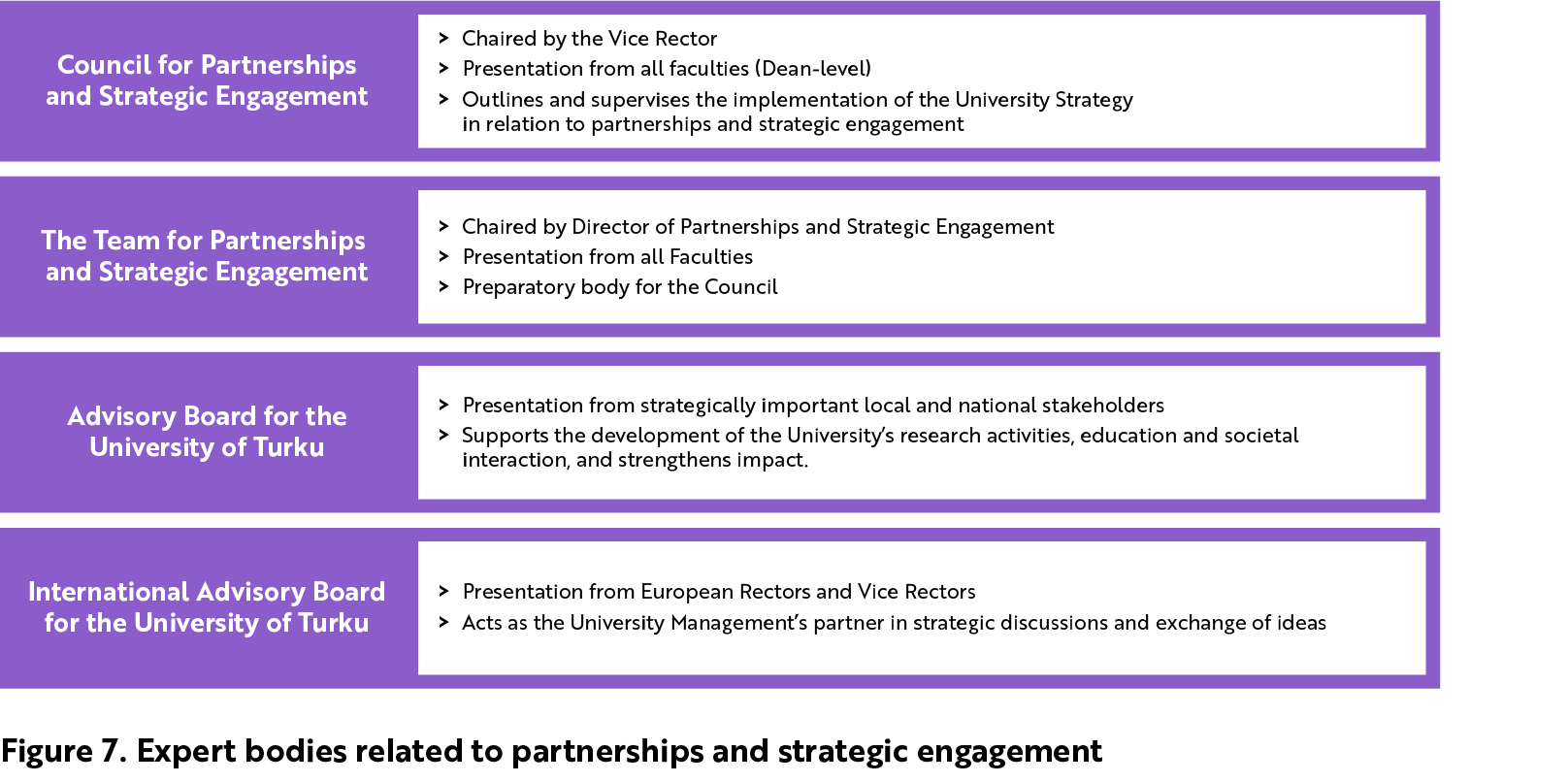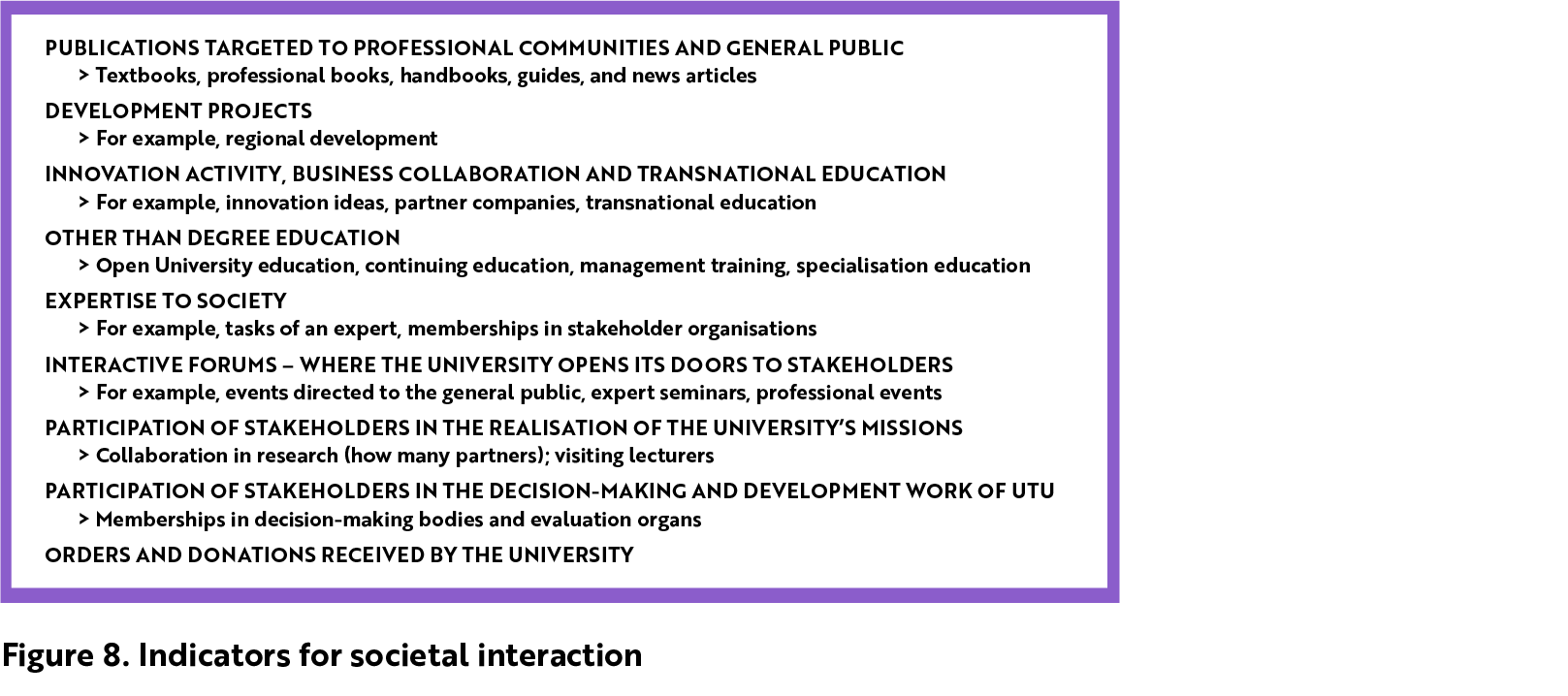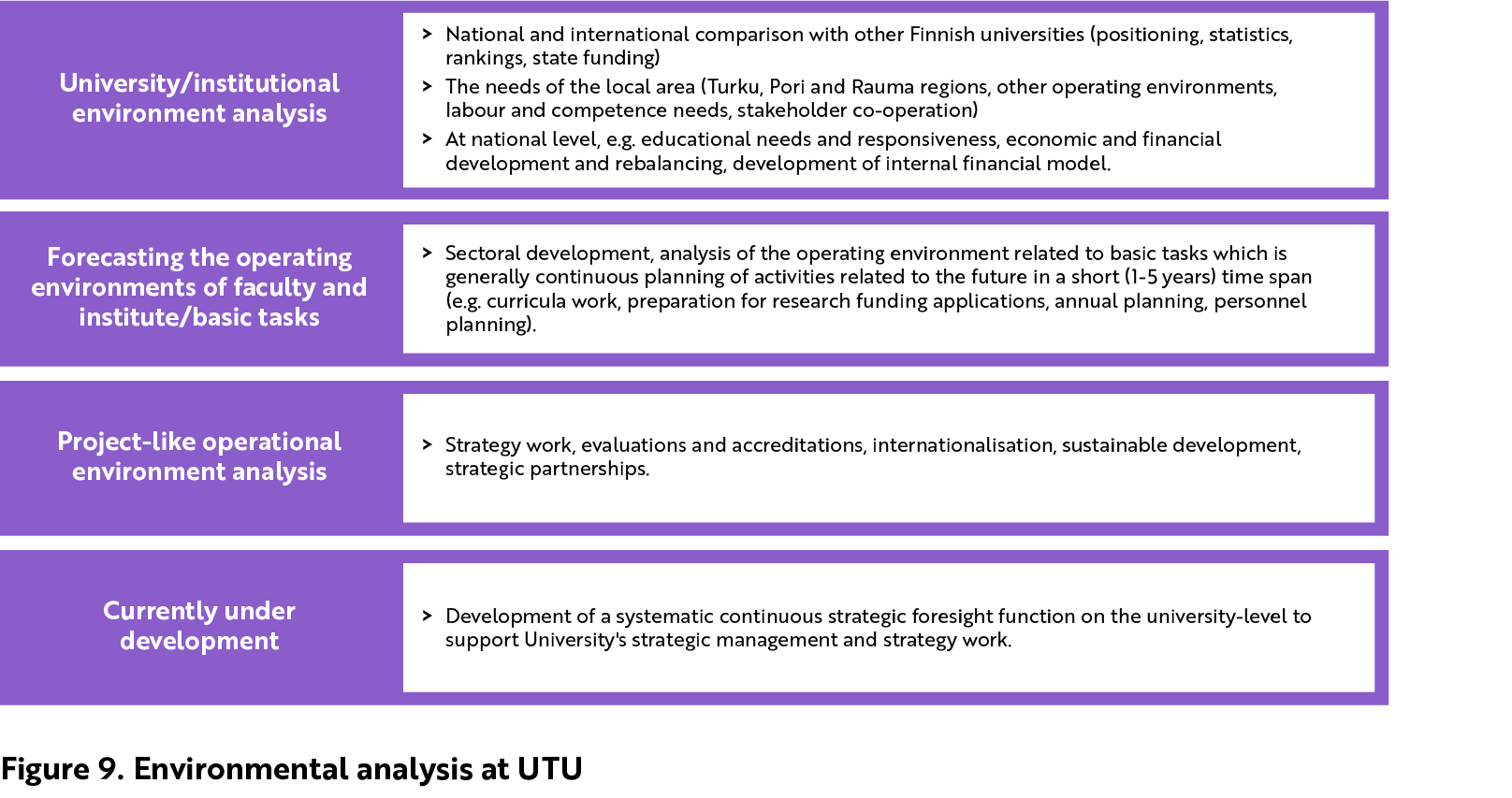Management of societal engagement and impact
UTU’s societal engagement and impact are primarily based on research and education. They are also implemented via dedicated actions, services and the established roles UTU holds in society and which are grounded in the research and education at UTU.
UTU’s societal engagement and impact is promoted and managed by the Vice Rector for Partnerships and Strategic Engagement. The central expert bodies of partnerships and strategic engagement consists of the Council and the Team for Partnerships and Strategic Engagement, the Advisory Board and the International Advisory Board (Figure 7). In 2021, UTU established the unit of Partnerships and Strategic Engagement (see chapter 4) led by the Director of Partnerships and Strategic Engagement. The unit supports and develops societal interaction and stakeholder relations regionally, nationally and internationally and coordinates the activities of the Council and the Team for Partnerships and Strategic Engagement.

Societal engagement and impact are also enhanced with the support of the University Communications led by the Communications Director. The unit develops UTU’s organisational identity, profiling, media relations, and shared communication tools as well as assist the in management of strengthening public relations.
In its Strategy, UTU has set the goal of being a proactive and dynamic partner. Accordingly, UTU aims to be a respected and responsible societal contributor and establish strong regional partnerships that make UTU‘s operational environment unique and internationally attractive.
Quantitative follow-up targets for societal interaction are defined in the University level (Figure 8). Planning, assessment, and reporting of societal interaction and impact in the entire University takes place in connection with annual planning (see chapter 3.1), when units and faculties can showcase their strengths and typical cooperation and interaction.

Although strategic goals are shared by the entire University activities based on the Strategy vary between faculties. Faculties are encouraged to have their own bodies, operational plans, and dedicated resources (Vice-dean, personnel to aid in engagement and publicisation of research results etc.) to promote societal interaction and impact. Currently, two faculties have a dedicated committee and one faculty has a strategic operational plan. In addition, UTU has units that are focused on mediating research to the service of society (e.g. Biodiversity unit, Brahea Centre).
Decision-making and actions are based on knowledge and open interaction in UTU’s operational environments
One of the strategic goals of UTU is to be an active expert community. Accordingly, at UTU, leadership and management are based on knowledge and open interaction. Also, the Principles and Practices of Leadership at UTU emphasise practicing foresight and considering changes occurring in professional life and society.
Information retrieval, creation, analysis and utilisation related to UTU’s operational environments take place, on the one hand, as centralised activity in the administration and, on the other, in the faculties as part of their regular work. Firstly, The Strategic Planning unit, led by the Director of Strategic Planning, conducts foresight work and operational environment analysis from University-level perspective in order to support the strategy work and strategic management (Figure 9). The focus is especially on the future. This work is supported by the newly established Knowledge-based Management Initiative (see chapter 3.1).

Secondly, UTU has well-established and long-lasting connections with the private, public and third sector in the Southwest Finland and in its campus cities. Through active cooperation, UTU can respond to needs in these regions and proactively development competitiveness and welfare in the regions. An example of this is the establishment of the Faculty of Technology to tackle the lack of technology experts in the Turku region. Information is also shared in several networks and partnerships (see chapter 2.3) and, for example, through the dual positions that UTU members hold in other large regional organisations (e.g. the City Hospital). UTU is also a contributing member in the Southwest Finland Foresight Academy and several other networks that operate across the boundaries of different professions and industries, and through which the University can contribute to the regional and national development.
Thirdly, educational policies (e.g. the Continuous Learning Policy 2021–2030) and research policies recognise the importance of foresight and analysis of the operational environment. Hence, they are considered as part of the regular work in order to maintain the competitiveness of education and research. Here, the operational environment is not only regional, but national and even international. The impact of research and education is monitored through annual reporting. In principle, impact is assessed on a per-project basis, e.g. according to funder’s guidance. For example, the strategic flagship project INVEST has developed its own impact metrics, the usefulness of which is examined on the University level, primarily by the Council for Partnerships and Engagement.
